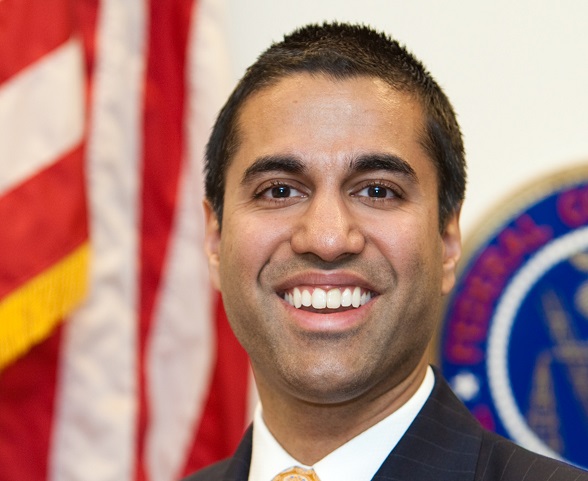FCC's Pai Doesn't Feel Guided by Privacy Guidance

The smarter way to stay on top of broadcasting and cable industry. Sign up below
You are now subscribed
Your newsletter sign-up was successful
FCC commissioner Ajit Pai calls the FCC's decision—he opposed it—to classify ISPs under Title II a "risky reversal of course" that threatens a reversal of the nation's broadband fortunes.
That came in a speech at a telecom and media forum at the International Institute of Communications in Miami where he also took aim at the FCC's recent guidance on broadband privacy, suggesting it craeted more confusion than clarification.
He laid out the case for why what he said had been the long-standing light-touch regulatory approach—including removing barriers to infrastructure development, increasing flexible-use spectrum policies and encouraging a 'robust" secondary spectrum market—was responsible for the growth and innovation of the Internet, then pivoted to what he said was a threat to that, exhibit A being Title II.
"Broadband networks don’t have to be built. Capital doesn’t have to be invested. Risks don’t have to be taken. The more difficult regulators make the business case for deployment, the less likely it is that broadband providers big and small will invest the billions of dollars needed to connect consumers with online opportunities," he said.
Pai took aim at the FCC's just released guidance on how they would wield new broadband consumer privacy powers under Title II. The guidance was mostly general advice to ISPs to protect privacy while the FCC decides exactly what needs protecting and how—the interim period between the Title II-based rules effective date of June 12 and when the FCC decides exactly how to implement privacy obligations given that they decided to not just graft the phone-related rules to broadband.
Pai didn't feel very guided by the FCC advice—which came from the Enforcement Bureau, saying it "casts far more shade than sunlight."
"The guidance says 'the Enforcement Bureau intends to focus on whether broadband providers are taking reasonable, good-faith steps to comply with [the law], rather than focusing on technical details.' And 'the Enforcement Bureau intends that broadband providers should employ effective privacy protections in line with their privacy policies and core tenets of basic privacy protections," Pai pointed out. "What does this mean? What exactly do broadband providers have to do to comply with the law? I am an FCC Commissioner and a lawyer, and I have no idea. Your guess is as good as mine."
The smarter way to stay on top of broadcasting and cable industry. Sign up below
Contributing editor John Eggerton has been an editor and/or writer on media regulation, legislation and policy for over four decades, including covering the FCC, FTC, Congress, the major media trade associations, and the federal courts. In addition to Multichannel News and Broadcasting + Cable, his work has appeared in Radio World, TV Technology, TV Fax, This Week in Consumer Electronics, Variety and the Encyclopedia Britannica.

